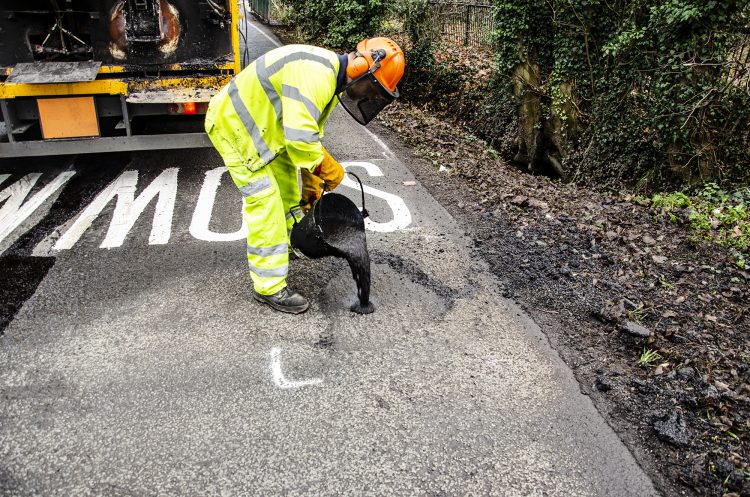More than 3,300 potholes treated on Shropshire’s roads since 1 April
Over 3,300 potholes and other defects have been treated on Shropshire Council’s roads so far this month as the council’s highways team takes advantage of the reduction in traffic during the lockdown.
Between 1 and 23 April, 3,343 defects were treated. The vast majority are pothole repairs, with work also including some kerbing and ironworks.
On average 37 gangs are on the county’s roads each day, predominately two-man pothole crews. Work being carried out also includes texpatching*, thermal patching, and jet patching.

Steve Davenport, Shropshire Council’s Cabinet member for highways and transport, said:
“These figures show that we’re working hard to fix Shropshire roads.
“We’re prioritising essential repairs, such as potholes and pavement defects, to ensure that the county’s roads remain safe and serviceable. This means that work is continuing to take place on the network, and we’re ensuring that council staff and contractors are following the Government guidelines – to ensure their health and safety, and that of the public.
“We’re also aware that the impact on the public is significantly reduced by undertaking highways work during this period and, as a result, we’re maximising our resources wherever possible.
“I’d like to thank all of our highways officers and contractors for carrying out this important work during what it a difficult time.”
Meanwhile, a limited number of highways schemes have been progressed or completed in recent weeks, but all planned and non-safety critical highway works are currently suspended – though will restart once the current restrictions are lifted.
Roads inspections have been largely unaffected, and all work is being monitored to ensure that it complies with Government guidelines.
Further information
*About Texpatching. Under this new process, potholes are cleaned out, filled with a unique material called Texpatch, then covered with a neat, square patch. This will provide a longer-lasting, smoother, neater finish compared to traditional pothole repairs, and seals up all joints, which should result in an increased life span for the repair.

